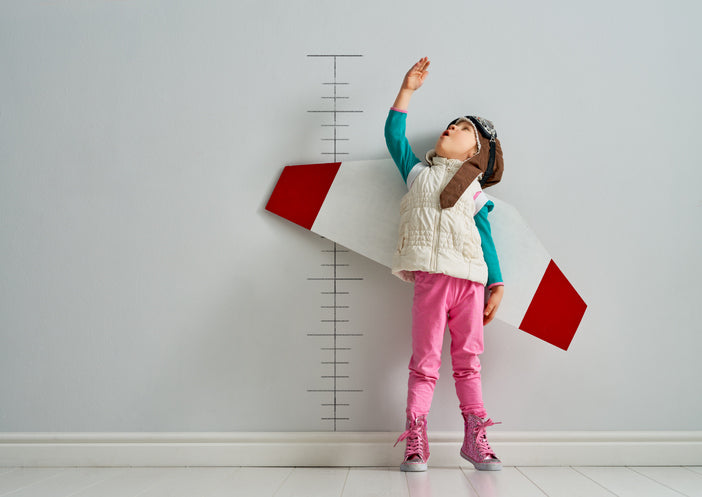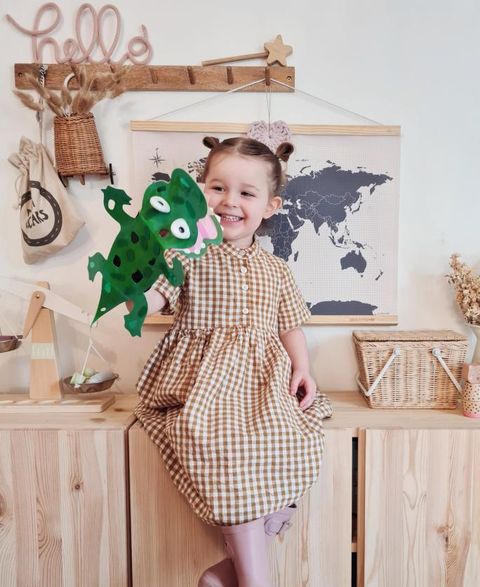The journey of childhood is marked by numerous growth milestones, each signifying a unique developmental phase. As a child blossoms and transitions from crawling to walking, babbling to talking, and imitating to creating, they cross multiple developmental milestones. But what are these stages, and why do they play a pivotal role in shaping a child's future? Dive with us into the fascinating world of childhood development stages — and remember to check out our previous entry on emotional development (and the value of child psychology) in the process.
1) What are growth milestones?

Childhood development stages, synonymous with developmental milestones, act as significant markers in a child’s evolving life. These milestones offer insights into not just physical progress but cognitive, communicative, and emotional growth.
The essence of milestones
The concept of developmental milestones stems from patterns observed over generations. While the exact timing may vary for each child, these milestones offer a general framework, indicating when most children might reach specific developmental stages.
Categories of milestones
The milestones are broadly classified into:
- Physical milestones: Including both gross and fine motor skills.
- Cognitive milestones: A child's learning and thinking abilities.
- Social and emotional development: How children interact and process emotions.
- Communication milestones: Evolving language and expressive abilities.
Variability and individuality
It's important to recognise that while milestones offer a guiding framework, there's a broad range of what's considered 'normal'. Every child is unique, and variability is to be expected. Rather than rigid benchmarks, these milestones should be viewed as fluid markers, offering a general overview rather than strict timelines.
2) Unravelling key growth milestones

Navigating the world of developmental milestones can sometimes feel like decoding a complex puzzle. To simplify this journey, let's delve into the primary aspects of infant development.
Physical development in childhood
Toddler (1-3 years): Walking independently, running, climbing.
Preschool (3-5 years): Hopping, swinging, greater hand-eye coordination.
School age (6-12 years): Mastery of complex motor skills, increased stamina.
Communication milestones
Toddler: Two-word sentences, vocabulary expansion.
Preschool: More complex sentences, story narration.
School age: Fluent conversation, understanding abstract concepts.
Cognitive milestones
Toddler: Object permanence (learning that things still exist, even when they can't be seen), early problem-solving.
Preschool: Basic arithmetic understanding, imaginative play.
School age: Logical thought processes, classification of objects based on multiple factors.
Social and emotional development
Toddler: Attachment to caregivers, playing alongside peers.
Preschool: Developing friendships, understanding group dynamics.
School age: Empathy, understanding others' perspectives, managing complex emotions.
By understanding these milestones, parents and caregivers can have a holistic view of their child's development. This approach ensures that we nurture not just the body, but also the mind, heart, and soul of the child.
3) Why monitoring milestones matters

The act of observing and tracking milestones is not merely a parental rite of passage, but plays a crucial role in understanding and supporting the holistic development of a child. Let's explore why paying close attention to these milestones is more than just ticking boxes on a growth chart.
Foundations of future growth
At the heart of every milestone is a series of developmental events that lay the foundation for subsequent skills and abilities. For instance, before a child can walk, they need to develop the muscle strength and coordination to sit, crawl, and stand. Monitoring these milestones allows caregivers to confirm that a child is on track to build the necessary foundations for future growth.
Early detection of developmental delays
Consistent monitoring can act as an early warning system. If a child isn't reaching certain milestones within the expected timeframe, it might indicate potential developmental delays or health concerns. Early detection is paramount, as it can lead to timely interventions, support, and in many cases, better outcomes for the child.
Informed and personalised parenting
Understanding where your child is on their developmental journey equips you with the knowledge to provide tailored support. If a child is showing signs of mastering a particular milestone, caregivers can introduce activities or toys that challenge and encourage the next stage of development.
Strengthening emotional and social bonds
Milestones aren't just physical or cognitive — they're deeply intertwined with a child's social and emotional development. Recognising and celebrating these moments can foster a stronger bond between child and caregiver, reinforcing feelings of love, security, and belonging.
Anchoring expectations
While every parent dreams of their child being a prodigy, understanding typical developmental timelines can help anchor expectations to reality. This not only alleviates undue pressure on the child but also prevents unnecessary anxieties for caregivers.
In summary, while each child's journey is unique, milestones serve as signposts that help us track their development. They ensure that we, as caregivers, are equipped to guide, support, and walk alongside our children as they navigate their early life.
4) The role of arts and crafts in boosting development

As children grow, it's essential to provide them with stimuli that nurture their budding talents and foster holistic development. Here's where the magical world of arts and crafts comes in.
Engaging in arts and crafts has been shown to bolster various aspects of child development. From refining motor skills through intricate craftwork to enhancing social and emotional development by expressing feelings through art, the benefits are numerous. Furthermore, crafts offer children a platform to explore, imagine, and create — aiding cognitive development.
Our carefully curated range of arts and crafts kits is tailored to foster the very essence of this growth. Whether it's moulding clay, stitching, painting, or assembling, every activity is an opportunity for your child to hit developmental milestones whilst having fun!
Ready to embark on this artistic developmental journey?
🎨 Visit our shop: Dive into our rich collection of arts and crafts kits, each meticulously designed to cater to various childhood development stages. Develop physical, cognitive, and emotional growth through crafting that promises not only skills acquisition, but heaps of fun too!
🌟 Join our subscription craft club: Ensure your child never runs out of creative opportunities. With monthly craft kits tailored to a variety of age groups, watch as each box unfolds new possibilities!
Childhood is a journey, and each milestone is a story. Equip your child with the tools they need for holistic development, ensuring that each chapter is as enriching as the last. Embrace growth, embrace creativity!
Edited by James Hickman
Primary school teacher and educational writer
James is a Primary school teacher and copywriter with over 5 years of teaching experience. Having taught not only in the UK but also in Italy and in Spain, he enjoys travelling and (having worked in architectural practice in Cambridge) loves crafting too!







